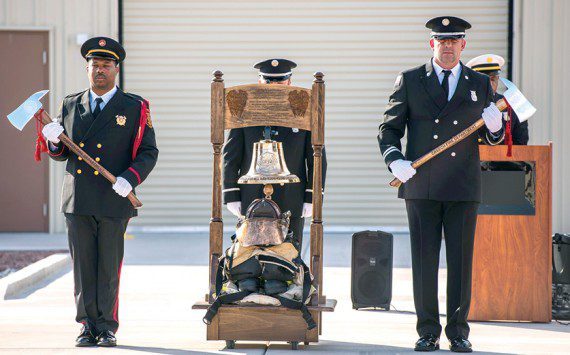Are you ready?
Imagine that it’s 3:30 p.m. local time on a Friday and you’re looking forward to a rare treat, some down time over the weekend. It’s your time to catch up with the family, take care of some needed tasks at home, have fun with friends, and maybe get a little sleep. Things are winding down at work as everyone is getting ready for the weekend.
Your supervisor walks over to you with a look of concern in their eye. You are informed that you need to be at the passenger terminal at 2:45 a.m., less than 12 hours from now. You’re deploying and you’ll find out on board where you’re going, and with luck, how long you’ll be gone. You have roughly one hour of duty time to wrap things up for your office, pick up some gear at the Logistics Readiness Squadron, and finish up anything else you need from other base agencies before you’re out the door.
Are you ready?
Over my Air Force career, the question of “are you ready?” has been the single most valuable question for me to ask. The short notice deployment just described actually happened to me early in my career.
I was not ready.
With less than 12-hours’ notice, I still had some computer-based training to take care of. My mobility bag technically had all the required items, but most of the gear wasn’t serviceable, and some of it was even secondhand and didn’t fit. I didn’t have a will or power of attorney, and I wasn’t sure where my passport was. I didn’t even know where the PAX terminal was on base, and that was where I was supposed to show up to deploy. I was told I would need to bring documentation covering my qualifications and certifications, but I wasn’t really confident I knew how to provide that. About the only thing I had going for me was a good attitude. The deployment was turned off after waiting 16 hours in the PAX terminal, which gave me ample time to reflect and ask myself “am I ready?” Clearly, the answer was a resounding, no.
Are you ready?
It’s easy going day-to-day thinking about all the tasks and jobs we have to do. Pretty much every work center on base could use more people just for normal operations. On occasion, we show up on someone’s radar as “being red” for some computer-based training, medical requirements, or some other issue that needs to be corrected. It is easy to feel that these requirements are a hindrance and that they interfere with the job that needs doing right now. It can be tempting to do whatever you can to “go green” as fast as possible. But we need to slow down and ask first if we are ready. When we show up “green” with all of our CBTs, medical exams, and other requirements, we’re sending a message to our leadership that we’re good to go at a moment’s notice. But if we clicked “next” as fast as we could on our CBTs, didn’t tell the doctor about that medical issue we’ve been pushing through best we could, or thought the other requirements we had were just boxes to check, we might not be ready when needed. It’s understandable to think that we don’t need a passport, will or power of attorney. It’s easy to assume that we can pay bills online pretty much anywhere in the world, or think that because we can do our job on base we can do it anywhere. But we need to ask ourselves if we are really ready. If we were asked today if we could go to a bare base in a hostile war-torn country, without hardened facilities or even a good fence around the base (much less mail or internet), can we honestly say we’re ready for anything and everything we might face? If your answer is yes, think again about all the other jobs you might have to do in a deployed location. Sure, I’m a great medic, but how good of a security forces augmentee am I? Do I feel comfortable with a weapon? Can I move in body armor? Am I good with my combative skills? Those are things that I don’t do every day, and might not show up on any report about my readiness. If the answer to any of these questions is no, I need to let my supervisor and commander know my weak spots where I need training. Not everything shows up on a convenient report. If there are skills or training you need before you deploy, chances are good someone else in the unit will need them too.
Likewise, don’t neglect your home situation. It’s easy to focus on the job, but what would happen to your family if you were suddenly gone for an extended period of time? How prepared are they for the challenges that might come when you are not there? Even if your only family is a pet goldfish, do you have a plan for those that rely on you being here?
We have become accustomed to routine deployments in the Air and Expeditionary Force cycle, and I’m sure our enemies appreciate that. Natural disasters tend to be unpredictable as well. Asking if we’re ready to perform the mission anywhere, anytime is a useful tool that can help when the unexpected tragedy happens, but it can also help enable some great opportunities. After that incident early in my career, I’ve tried to always be ready, and it certainly has paid off. I had the opportunity to go on some amazing temporary duty assignments simply because I was ready when someone was needed, from supporting NASA in Morocco, to providing medical care in Nepal, to teaching in Indonesia to name a few. More to the point, if I get a call this afternoon like I did all those years ago, I know that I am ready. I can focus on the mission and do my job anywhere I may get called, and my family will be taken care of.
Are you ready?











